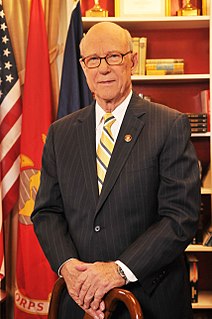A Quote by Winston Churchill
Politics is almost as exciting as war, and quite as dangerous. In war you can only be killed once, but in politics many times.
Related Quotes
We don't want to impose our solutions by force, we want to create a democratic space. We don't see armed struggle in the classic sense of previous guerrilla wars, that is as the only way and the only all-powerful truth around which everything is organized. In a war, the decisive thing is not the military confrontation but the politics at stake in the confrontation. We didn't go to war to kill or be killed. We went to war in order to be heard.
The great error of nearly all studies of war, an error into which all socialists have fallen, has been to consider war as an episode in foreign politics when it is especially an act of internal politics and the most atrocious act of all . . . Since the directing apparatus has no other way of fighting the enemy than by sending its own soldiers, under compulsion, to their death-the war of one state against another state resolves itself into a war of the state and the military apparatus against its own people.








































